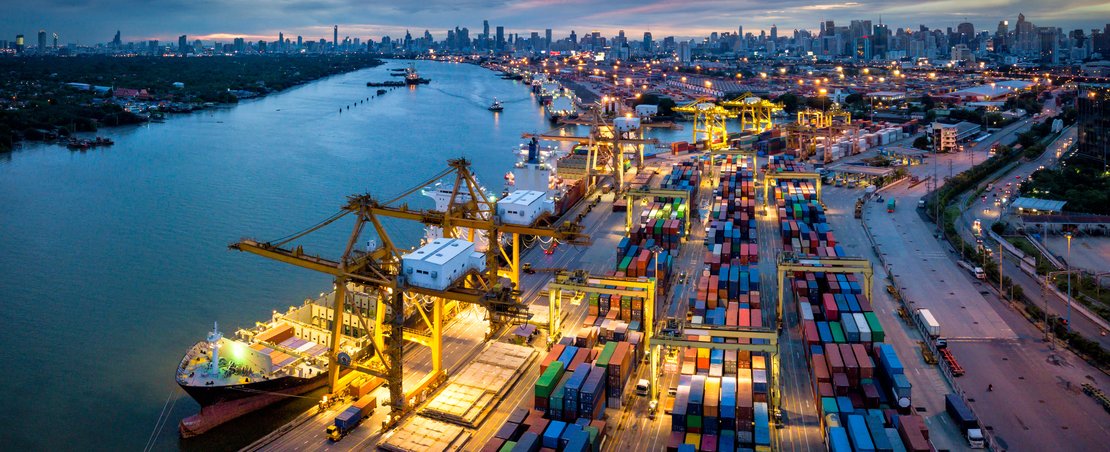
For policymakers to facilitate the international exchange of goods and services, it’s vital that they can access metadata of trade agreements, says Nicolas Köhler – Trade Policy Advisor at International Trade Intelligence
Data and trade
Data plays an increasingly important role in international goods and services trade. In fact, there are strong indications that cross border data flows can enhance domestic trade competitiveness and economic growth.
Yet the 164 member states of the World Trade Organization (WTO) have so far been unable to agree on a common set of standards for international data flows. The latest generation of trade agreements has nevertheless tried to facilitate open data sharing across borders in a manner that addresses business and consumer concerns around privacy and security.
The United States–Mexico–Canada Agreement, for example, prohibits data localization requirements while referring to the APEC Cross Border Privacy Rules as a privacy compliance mechanism.
Better metadata, better trade
While these efforts are focused on increasing cross border data flows, it is not yet commonly understood that access to the metadata of trade agreements is also vital for policymakers that want to facilitate the international exchange of goods and services.
The multilateral trading system is under attack from the US-China trade war and other disputes, and governments are interested in understanding the effectiveness of their bilateral free trade agreements (FTAs) that go beyond WTO commitments. On the one hand, FTAs can serve as a fallback option if the multilateral system fails; on the other, preference margins can help the competitiveness of exports.
Metadata on preferential trade
Governments especially want to know how business uses the tariff preferences that FTAs grant after they go into force. This is important, because the signing of a trade agreement alone is no guarantee that trade with the FTA partner country will happen under the rules of the FTA, as exporters and importers can also opt to trade under multilateral trade rules or under the rules of another preferential scheme. Obtaining FTA metadata is a key to understanding how trade agreements are actually working and where the design of future agreements could be improved. In particular, low rates of trade preference utilisation can help governments to identify information gaps in the business community and determine which rules of trade agreements may be impractical in business reality. It is therefore imperative to understand if and how FTA preferential rates are used, both to maximise the benefits they can bring to business and consumers and to assess the impact that they may have on the architecture of the international trading system.
Reliable data on preference utilization can only be derived from the import statistics of customs authorities. Although almost all customs authorities collect the preferential import data that is needed to assess preference utilisation rates, only a minority of them – including the EU, the US and Japan – make this FTA metadata publicly available. But even these countries need to obtain data from their FTA partners to assess whether their exporters are using FTA preferences. This means that despite the benefits that FTA metadata could bring if all governments provided open access to it, governments today face a coordination problem that makes an objective analysis of FTAs difficult, if not impossible.
Data hoarding
The Open Data Institute has shown that in some situations organisations can be reluctant to share data due to a lack of trust and openness. But the full value of data can only be harnessed – by governments, businesses, and civil society – when those who steward data and create information from data act in ways that lead to the best social and economic outcomes for everyone.
Governments and international institutions that subscribe to the idea that they are providers of domestic and global public goods need to take these recommendations to heart. Better access to the metadata of FTAs benefits not only domestic firms and consumers but would also allow policymakers to assess and improve the architecture of the international trading system at a critical juncture.
Open access enables better policies
Without access to preferential import data, there is no easy way for governments to understand the performance of their exports under FTAs. As a stopgap measure, the European Commission has tried to collect these FTA metadata directly from its FTA partners, albeit with limited success. To repeat the same exercise for all other members of the WTO is not only highly inefficient, but would also preclude the important analysis of systemic impact on the international trading system.
Governments already report a variety of trade data to international organisations, which has created a more transparent and predictable environment for all stakeholders. If more governments provided comprehensive time-series data on their preferential imports, they could overcome their current coordination problems and contribute to better social and economic outcomes for all. While improved standards of metadata transparency have not yet been widely considered, they will become increasingly important for the agenda of evidence-based policymaking.
